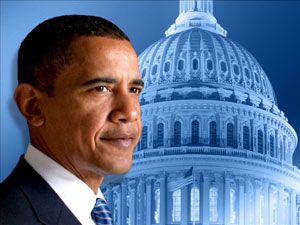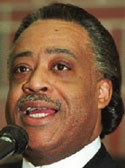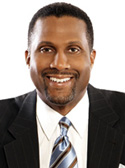CHARLENEM
- View the Saturday, March 20, 2010 Black Agenda Conference (FinalCall.com/BlackAgenda)

(FinalCall.com) – Tavis Smiley, popular radio and TV talk show host, and Rev. Al Sharpton, a national civil rights leader, have clarified their positions and moved on since they hotly debated President Barack Obama’s Black agenda–or lack of one–on the reverend’s nationally syndicated radio program.
But the treatment of Black issues by the first Black president remains a hot topic as are discussions about whether raising issues important to the community or views critical of the president’s policies, or non-policies, is the proper thing to do.
According to Dr. Maulana Karenga, professor of African Studies at California State Universityof Long Beach, the problem of pushing President Obama to be more responsive to critical issues facing the Black community is complicated by several factors. “These include vicious attacks of the right-wing on President Obama; the disruptive practices of the Republicans; the concealed opposition of some around him; the lukewarm and lackluster support of his party; and the historical meaning of the Obama presidency to us as a people and the progressive future of this country,” Dr. Karenga told The Final Call via e-mail.

When Rev. Sharpton, Marc Morial, of the National Urban League, Ben Jealous of the NAACP, and Dr. Dorothy Height of the National Council of Negro Women sought a meeting with President Obama over the disproportionate number of Blacks and poor people who were unemployed, the feeling was that that request addressed an element of the Black agenda, according to Rev. Sharpton.
The meeting, which Dr. Height could not attend, was not about the broader agenda but to say that Black unemployment is not part of the agenda is to say Black poor people don’t matter, Rev. Sharpton said.
Mr. Smiley argues more questions needed to be asked of President Obama, questions related to everyday living, from affordable education to housing and unemployment.He has been candid and outspoken in his call for the president to address a Black agenda and reaction has been intense from supporters of the president. Mr. Smiley has found himself attacked over this stand, especially views expressed in a commentary critical of some Black leaders, and a March 20 discussion of the issue he has organized at Chicago State University.Chicago is also the president’s adopted hometown.

“I think part of it, I’m not naïve, is that I actually called some names in that commentary, some names of Black leaders whom I respect, have great admiration for, who are freedom fighters.But when Black leaders, certain Black leaders, start saying that the president, any president, doesn’t need to address the concerns of Black people, that he doesn’t need to have a Black agenda, that’s troubling for me because I don’t know how else the concerns of Black people get addressed if Black leaders and Black people don’t force the president to respond to their concerns,” Mr. Smiley told The Final Call.
The PBS radio and TV talk show host admits some of the criticism he has received stems from those who call him an Obama “hater,” which goes back to when Mr. Obama was seeking the White House. Mr. Smiley insists he is an Obama supporter, not a critic, but a supporter willing to ask unsettling questions.
He argues the Obama critique follows critiques he extended to other presidents: He cited confronting Bill Clinton on the crime bill that paved the way for mass incarceration of Black youth, the president’s lack of action on Rwanda during the Hutu-Tutsi conflict and his welfare reform bill.
President Obama absolutely must be accountable, Rev. Sharpton told The Final Call, but people must not confuse accountability with a Black agenda.There would have been no meeting between him, Mr. Jealous, Mr. Morial, and the president if they were not holding Mr. Obama accountable, Rev. Sharpton said.
Accounts that say the president didn’t have to deal with a Black agenda have been distorted, Rev. Sharpton continued. “That’s not what we said.What we said is we didn’t expect him to deal with only a Black agenda.We were dealing with Black unemployment; the White House was the one that leaked that he was meeting with us on it. I think that we must challenge the president to be the president for everyone, including Blacks, and the disproportionate level of Blacks, but to start distorting and attacking each other only feeds into the right wing that will only enjoy seeing the demise of this president, while all people and our people need him to be strengthened and consistent, but not destroyed.”
Dr. Karenga said dialogue around the question of a Black Agenda and presidential support of such an agenda, is good and needed. However, “it must be one that is conducted with mutual respect, puts the interest of the people first, and is directed toward the collective development and acceptance of a Black agenda and building of a Movement to push and achieve it,” he said.The agenda should not just be directed toward President Obama or the Congress, but must be advanced on every level of Black life, Dr. Karenga said.
Dr. Anthony Asadullah Samad, an author, syndicated columnist and political scientist, feels Black issues must be kept in front of President Obama, and the back and forth between Black leaders has been healthy engagement. “There’s always been opposing views, not only with how we should deal with our reality, but how White people should deal with our reality. This is the first time we have ever had to have a conversation about how a Black man deals with our reality in the presidency.This is new ground for us, too,” Dr. Samad said.
Blacks are hypersensitive about criticizing firsts, Dr. Samad continued. But things blow over, the analyst added, saying he and others were attacked for criticizing the late Tom Bradley, the first Black mayor of Los Angeles, for not speaking out about police abuse in the 1980s. The sentiment was, “You just don’t talk about Tom Bradley,” he recalled.But critics and Mayor Bradley admitted those who spoke out were right after riots fed by police brutality broke out, said Dr. Samad.
The issue isn’t whether or not Black leadership should confront President Obama on a Black agenda but whether the fight should be public and nationally televised, he said. “Don’t jam him because Bush didn’t do anything in his first two years and 9-11 created an opportunity for him to essentially ramrod anything down the American people and he didn’t do anything for eight years, but we want Obama to save the world in one year, 12 months … He’s out there swinging,” Dr. Samad argued.
The way to make politicians accountable is to forward demands before their election, which Blacks refrained from doing to Mr. Obama to avoid alienating Whites from him, said Bruce Dixon of Black Agenda Report, an online political journal. The journal editor also sees several things at work–including the flawed U.S. political system and the impact of corporate power which extends to all politicians. When running for the presidency, Mr. Obama railed against war drums on Iraq and the mindset that led to the war in Iraq and vowed to withdraw from Iraq in 15-18 months, Mr. Dixon said. The agenda behind that rhetoric is gone now, he noted. “That ought to tell you something.We really don’t have a way to make Democrats and Republicans accountable. We’ve got to build some other political houses up.”
One way around the two-party system is to run candidates that challenge Democrats and Republicans on issues that are important to Blacks, such as mass incarceration, and increased economic development, he said.Talk of accountability now is kind of a backwards-looking thing that tends to put the blame on Blacks for how people-proof the political system has really become, Mr. Dixon said. He doesn’t, however, shy away from challenging the president.
“When you want to shield the president from all criticism, what you are saying is we have no right to expect the government to take care of what the government’s business is supposed to be.Five-hundred or 1,000 years ago governments were the private property of kings and nobles, but in the modern era the government is supposed to be of the people and take care of the people’s business and the people’s resources and the people’s name.So we have the absolute right and duty to demand that the government be responsible to us and take care of our needs, makes sure there’s an educational system that really works and an economy that really works,” Mr. Dixon said.












